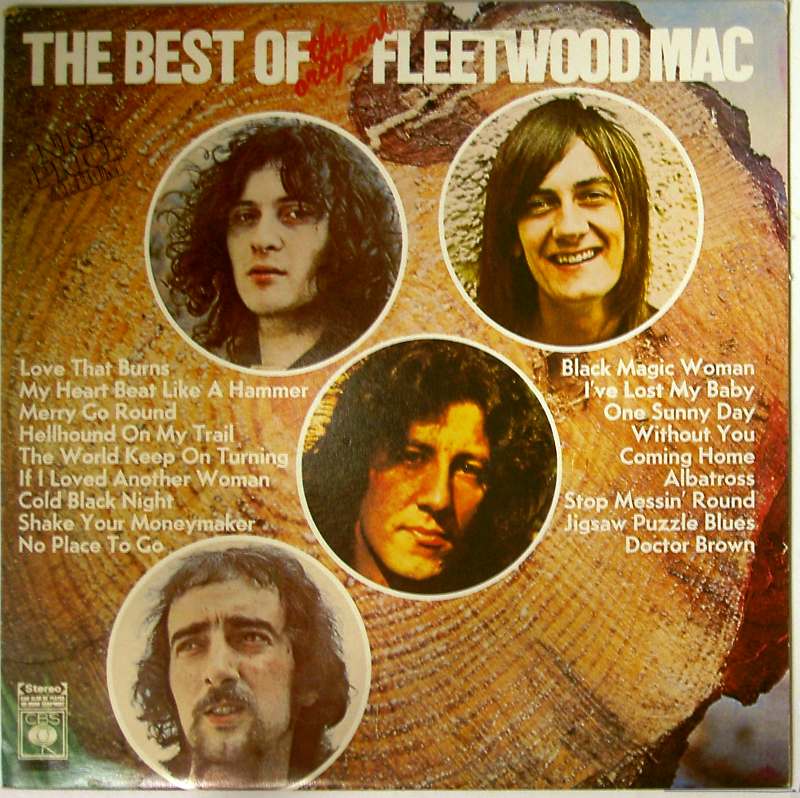

You might not have seen that influence as readily when Vito was in Fleetwood Mac for 1990’s more pop-oriented Behind the Mask however, through a string of solo albums, the blues has been Vito’s main calling card. Peter Green’s influence casts a long shadow, and Rick Vito is no exception, having covered “Rattlesnake Shake”, “Black Magic Woman”, and “Albatross” in various settings over the years. As a whole statement, Green explores many shades of the blues - from dark to light - on this re-entry to recording, which jump-started his career. Spiritual themes anchor the title track and the catchy “Seven Stars”, while “Just For You” is a moody love song. Thin Lizzy and occasional Pink Floyd sideman Snowy White shares some guitar duties his playing is especially noteworthy on “Slabo Day”. A combination of instrumentals and tracks with vocals by Green, the songs are laid back and groove-oriented. While that album tended to be unfocused and meandering, albeit powerful at times, In the Skies is very song-oriented, each track constructed well but never sacrificing feel. The music is miles removed from his previous outing, The End of the Game. Even Peter Green, who most had written off as a washed out drug casualty by this time, issued a strong comeback album with In the Skies. The late 1970s were a particularly fertile period for Fleetwood Mac alumni. A few years later, he struck radio gold with a remake of his Fleetwood Mac song “Sentimental Lady” from the solid French Kiss album. With this, Paris’ first album (a second, Big Town 2061, doesn’t quite measure up, though it has its moments), Welch sounds like he had something to prove - and he delivered, in spades. The drama and dynamics in “Narrow Gate (La Porte Etroite)”, the hectic and claustrophobic “Starcage”, and the wide open spaces of “Solitaire” are highlights.

Though it’s louder, his gift for melodicism shines through. Modeled after Led Zeppelin, this was a harder rocking side of Welch than had been seen before or was seen after. Though not issued under his name, for all intents and purposes, this is a Bob Welch solo album he wrote all the songs, sang them, and plays the guitar parts. Paris was formed soon after Welch left Fleetwood Mac Welch was joined by ex-Jethro Tull bassist Glen Cornick and Thom Mooney, who had been in Nazz with Todd Rundgren in the late 1960s.

A later release titled Ram Jam City is a nice collection of demos recorded for Second Chapter, presenting the songs in an alternate light. After a third album in 1979, he dropped out of the public eye completely. It’s hard to believe when listening that mental issues would curtail his music career by the end of the decade. There’s a lot of joy and contentedness on Second Chapter, with the second half of the album being particularly strong. Though most of the fiery guitar dynamics of his days with Fleetwood Mac are gone, taken on its own merits the material here could easily have dominated the ’70s airwaves if Kirwan had been signed to a bigger label and performed live more (or at all, actually). He is a gifted guitarist and songwriter who seemed to have a dual persona: reportedly volatile and argumentative, Kirwan created a peaceful, summery song cycle in this first solo outing.
#BEST FLEETWOOD MAC ALBUMS PROFESSIONAL#
This album is the second chapter in Kirwan’s professional life, following his firing from Fleetwood Mac in 1972.


 0 kommentar(er)
0 kommentar(er)
